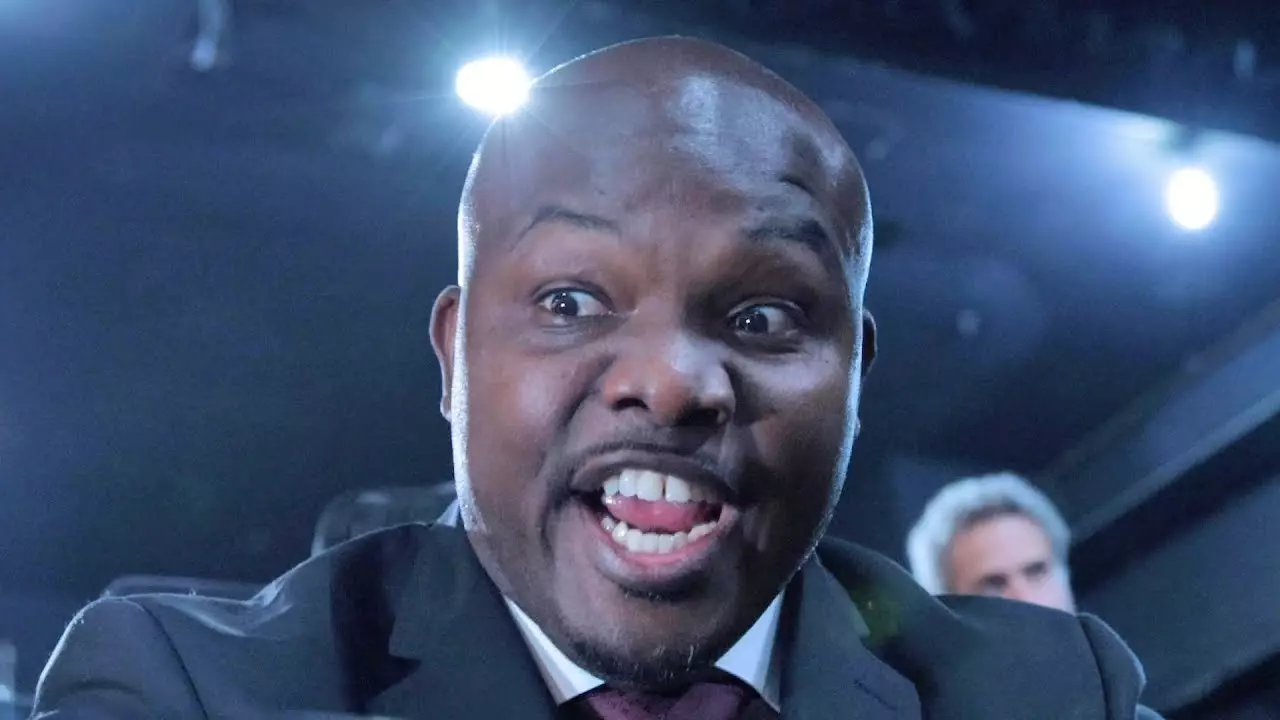In the evolving world of professional boxing, athletes are often faced with choices that weigh heavily on their integrity and reputation. The recent comments made by Timothy Bradley regarding Gervonta “Tank” Davis exemplify this complex dynamic, particularly in relation to the lucrative yet controversial matchmaking environment emerging in Saudi Arabia. Davis, who has earnestly voiced his discontent with fellow boxers who seemingly compromise their principles for financial gain, positions himself as a figure of genuine spirit in a sport often marred by superficiality.
Tim Bradley’s admiration for Gervonta Davis stems from the latter’s refusal to engage in the opportunistic pursuits that characterize much of contemporary boxing. Many fighters flock to Saudi Arabia, seduced by promises of exorbitant paydays and extravagant events orchestrated by influential figures like Turki Al-Sheikh. Yet Bradley lauds Davis for taking a different path—one that prioritizes authenticity over mere financial gain. By calling Davis a “real one,” he highlights the gravity of Davis’s decision to forgo what many perceive as a golden opportunity.
In a sport notoriously driven by commercial interests, Davis stands out by rejecting the status quo. As Bradley elaborates, this decision reflects not only a personal conviction but also a broader statement against the industry’s culture of compliance for cash. Observing the trend of boxers who “kiss the ring” in exchange for massive payouts, Davis’s stance becomes a rallying point for fans who yearn for athletes to maintain their integrity amidst a backdrop of greed and superficiality.
Through a pointed critique on social media, Davis expressed his frustration over the state of boxing in relation to those who prioritize financial gain over loyalty and authenticity. With remarks targeting fighters who accept lucrative offers to participate in events that feel disingenuous, he exposes a troubling reality: the obsession with money has led many to compromise their principles. His assertion that “most people built on a dollar sign” rings true as a poignant observation of how financial wealth often trumps loyalty and genuine connection in the sport.
Davis’s comments reflect a growing dissatisfaction that resonates not only with him but also with a segment of boxing fans who feel similarly estranged from the evolving dynamics of the sport. Fighters who boldly pursue authentic engagements are becoming increasingly rare, making Davis’s assertiveness all the more commendable. His defiance serves as both a personal declaration and a call to action for those who believe that boxing should embody values beyond mere monetary incentives.
The Implications of Choices in the Ring
The implications of Davis’s decision extend beyond his own career, as he represents a pivotal moment in boxing’s narrative. The clamor for financial success has engulfed many of his contemporaries, including major names like Terence Crawford and Canelo Alvarez, who have also pursued offerings in Saudi Arabia. With rising stars like Ryan Garcia and Devin Haney also aligning themselves with Al-Sheikh, the boxing community is witnessing a stark divide between those who maintain their ethos and those who endorse extravagant paydays at the apparent cost of their integrity.
Such choices will influence not only the direction of individual careers but also the future of the sport itself. As more fighters gravitate toward arrangements that may appear compromising, a culture predicated on loyalty, authenticity, and respect could begin to erode. Davis’s refusal to conform presents an opportunity for reflection: what does it mean to compete in a sport built on honor, tradition, and the essence of competition?
Repercussions for Contemporary Athletes
The repercussions of Davis’s choices could be substantial. As he boldly articulates his perspective, he becomes a voice of resistance against a pervasive culture that prioritizes financial enrichment over genuine rapport within the sport. His stance could inspire other boxers to reevaluate their own choices, igniting a movement that champions integrity in an era increasingly saturated by commercial motivations.
Ultimately, Gervonta Davis embodies what it means to be a true athlete, someone who transcends the lure of quick money to retain what makes boxing a respected, honorable endeavor. Fans and fighters alike should rally around his message, advocating for authenticity and a return to loyalty within an industry poised on the precipice of change. As the narrative of boxing continues to unfold, it is imperative that emerging and established athletes alike remember the roots of their craft—resilience, honor, and unwavering integrity.

